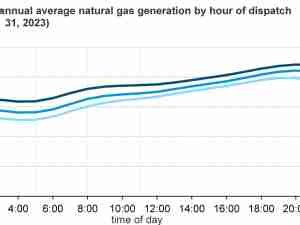Oil rose from a one-month low as flows to a key Turkish terminal were halted and part of a major European field were halted.
Brent climbed near $81 in London and market gauges known as timespreads grew more bullish. Turkey halted oil flows to the Ceyhan export terminal on the Mediterranean coast after a major earthquake, while production at part of Norway’s giant Johan Sverdrup field was lower due to a power outage. Ceyhan exports more than 1 million barrels a day and Johan Sverdrup’s first phase usually produces more than 500,000 barrels a day.
There was also renewed optimism surrounding Chinese energy demand after International Energy Agency Executive Director Fatih Birol said at the weekend that the world’s largest crude importer could see a stronger-than-anticipated rebound that will boost demand for crude. That view was echoed by the chief executive officer of Kuwait Petroleum Corp. on Monday.
“The prospect of improving Chinese oil demand and some supply disruptions are modestly supporting oil prices on Monday,” said Giovanni Staunovo, a commodity analyst at UBS Group AG.
A European ban on seaborne imports of Russian oil products in response to the war in Ukraine came into effect on Sunday. The measure is coupled with a price cap similar to one in effect for crude, and designed to curb Moscow’s revenues while enabling products to flow to third countries.
Oil has endured a bumpy start to 2023 even as China’s ditching of Covid Zero fanned a wave of speculation that it will ramp up purchases. At the same time, the Organization of Petroleum Exporting Countries and its allies have opted to maintain supply cuts, with Prince Abdulaziz bin Salman, Saudi Arabia’s energy minister, saying at the weekend that the kingdom will remain cautious about raising supply.
Demand in China is rising strongly following the ending of coronavirus lockdowns, Sheikh Nawaf Al-Sabah, head of Kuwait Petroleum, told Bloomberg Television in Bangalore, India. “With the opening up, we’re seeing an increase in demand that is sustainable. This is not a dead-cat bounce.”
Goldman Sachs Group Inc., meanwhile, reiterated a forecast that oil prices are set to top $100 a barrel this year. With sanctions likely to cause Russian oil exports to drop and Chinese demand expected to recover, crude will climb, analyst Jeff Currie said in Riyadh, Saudi Arabia, on Sunday.








